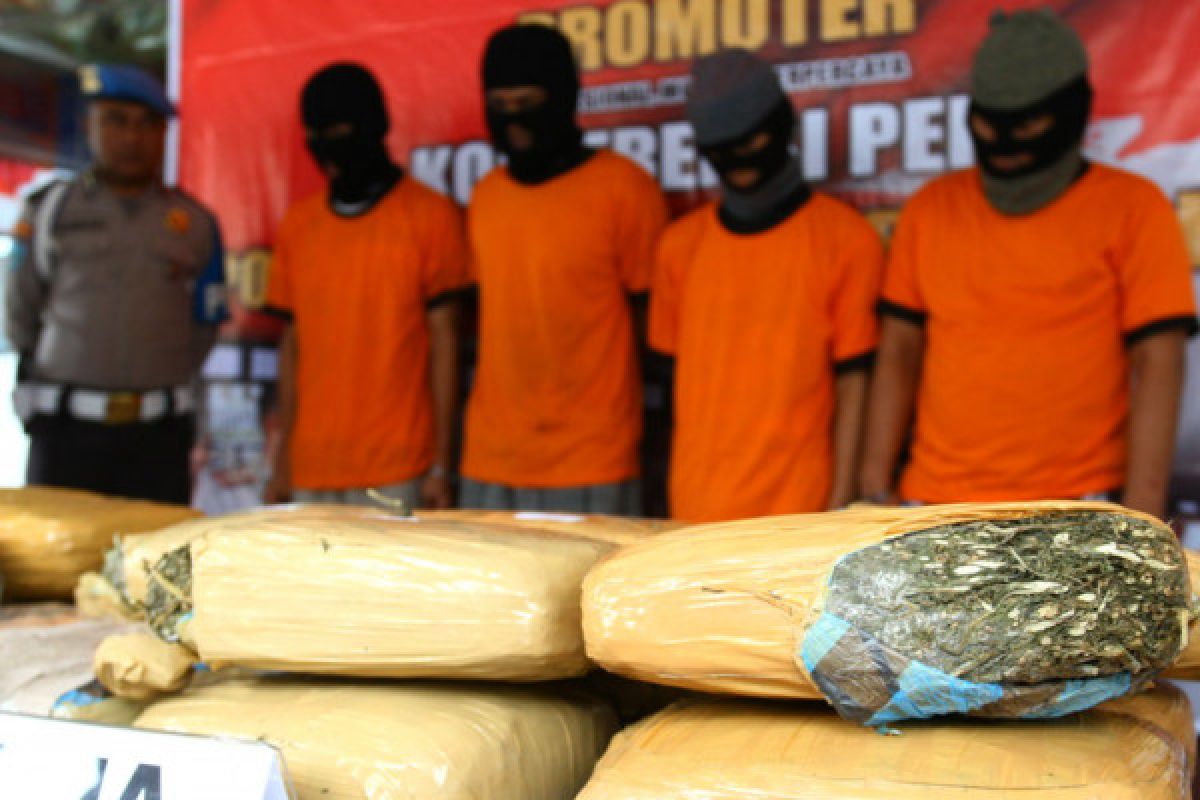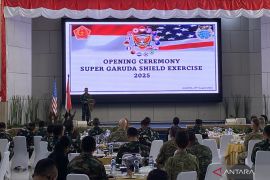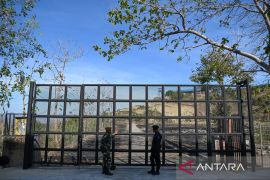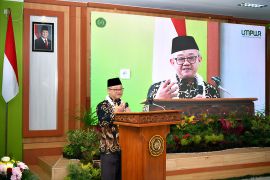The president`s order to take the harsh punitive actions against drug dealers was given on Sept 3, after the drug traffickers attacked and threatened the lives of the police and BNN officers. Since then, the law enforcers have taken the tough action on the ground.
The legitimate harsh actions are needed as the illicit drug trafficking and drug abuse have become a major threat to the country. According to BNN, some 50 Indonesians die of illicit drugs every day, while the total number of drug users in the country has reached seven million.
With millions of drug users and a huge population, Indonesia has been perceived by both local and trans-national drug dealers as one of their potential markets in Southeast Asia.
According to Luhut Binsar Pandjaitan, the former coordinating minister for political, legal, and security affairs, the value of drug trades in Indonesia is estimated to have reached at least Rp66 trillion, where 75 percent of the drug trafficking may be directed from inside the prison.
While considering the real threats of the illicit drugs that the drug kingpins smuggled into and traded in the country over the past few decades, the Indonesian Government`s harsh punitive actions against the drug kingpins are quite understandable.
It is also acceptable if Indonesia still maintains the capital punishment in its judicial system to punish drug traffickers. The death penalty is consistently applied for both Indonesian and foreign citizens who have been convicted by the panel of judges.
The drug convicts who have been executed over the past few years were Ang Kim Soei, a Dutch citizen; Namaona Denis, a Malawian; Marco Archer Cardoso Mareira, a Brazilian; Daniel Enemua, a Nigerian; Andriani alias Melisa Aprilia, an Indonesian; Tran Thi Bich Hanh, a Vietnamese; as well as Andrew Chan and Myuran Sukumaran, who were Australians.
However, the deaths of those drug convicts are yet to be able to deter other drug dealers. In Riau Province, local police apprehended a 43-year-old man for attempting to deliver 10 kilograms of "sabu-sabu" or crystal methamphetamine to somebody.
The drug courier, recently arrested for smuggling 10 kilograms of "sabu-sabu" or crystal methamphetamine in front of the Siak District police precinct, was threatened with death penalty.
"The suspect, only identified as YD, has been charged under Article 112, junto Article 114 of the 2009 Narcotics Law, which carries a maximum punishment of death penalty," Chief of Riau Province`s National Narcotics Agency Brig. Gen. Wahyu Hidayat, noted.
The suspect, a resident of the West Sumatran city of Bukit Tinggi, was arrested along with his wife while driving a van on Perawang Road KM 70 of Siak District, Riau Province, on July 29.
"The police investigators have continued to probe the role of his wife, as she confessed about not being aware of the crystal meth being concealed by her husband inside the car he was driving," he remarked, adding that the arrest was made after the suspect was under his agency`s surveillance for three months.
Head of the agency`s prevention and law enforcement unit Ajunct Sen. Coms. Haldun had stated earlier that the suspect was part of a Malaysian drug ring. The crystal meth was smuggled from Malaysia into Indonesia through the Buton seaport in Siak District, Riau Province.
The police investigators revealed that the suspect and individual, who would have received the drug package in Pekanbaru, did not belong to the same drug ring, thereby making it difficult for them to trace the suspect, he remarked.
The police investigators revealed that the couple, the residents of West Sumatra Province, had repeatedly been involved in drug trafficking activities in Riau. They had also transported at least two big packages of crystal meth.
"The two packages have been transported to Palembang, the capital city of South Sumatra Province. The first delivery contained one kilogram of sabu-sabu, while the second delivery contained two kilograms of crystal meth," he added.
The suspect confessed that he would have received Rp34 million (US$1=Rp14,390) for delivering the first and second packages of the addictive drugs, and he was promised Rp200 million by the unknown person for transporting the crystal meth.
"The suspect has, so far, received Rp8 million," he added.
Indonesia is indeed facing a serious threat of both drug abuse and illicit trafficking of drugs. In dealing with this problem, the Indonesian police and BNN cannot work alone. Instead, they need the support of both community members in the country and their foreign counterparts.
The United Nations and the Association of Southeast Asian Nations have, indeed, been aware of the importance of this international cooperation for winning the war on drugs.
Despite the absence of a deterrent effect on the drug dealers, Indonesia should maintain the capital punishment as it appears to be the best option to bring justice to the victims of the crimes, their families, and the nation.
For greater good for the nation, it is necessary for Indonesia to consider Philippine President Rodrigo Duterte`s way of solving the drug trafficking-related problems, which has ended with the deaths of more than seven thousand alleged drug offenders.
During the New Order era, Indonesia had adopted such a harsh punitive measure against those suspected of being criminals. Known as "Petrus" or mysterious shootings, this harsh measure has contributed to a significant decrease of criminals in the country.
Edited by Bustanuddin
Reporter: Rahmad Nasution
Editor: Heru Purwanto
Copyright © ANTARA 2018












